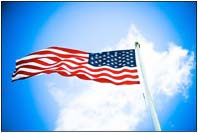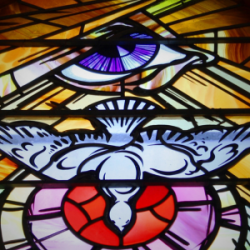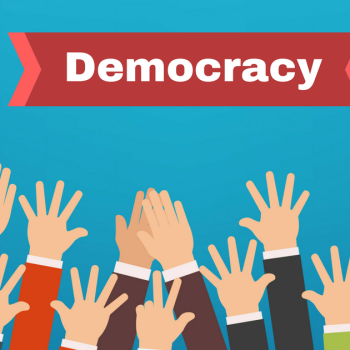By Bruce Epperly
 Recently, a federal judge declared that a statute setting an annual National Day of Prayer is unconstitutional, a violation of the separation of church and state. In reflecting on the court decision, I discovered that for once I'm in an agreement with conservative columnist Cal Thomas. Both of us think that a National Day of Prayer is not only a good idea, but a practice that, in principle, does not privilege one faith over another.
Recently, a federal judge declared that a statute setting an annual National Day of Prayer is unconstitutional, a violation of the separation of church and state. In reflecting on the court decision, I discovered that for once I'm in an agreement with conservative columnist Cal Thomas. Both of us think that a National Day of Prayer is not only a good idea, but a practice that, in principle, does not privilege one faith over another.
Now, before you get excited about a progressive Christian supporting a government-sponsored prayer day, let me reflect on how progressive and moderate Christians, who support such a day, might respond to the court decision in a spiritually-centered way. A thoughtful response may help us understand why a truly interfaith and open-spirited National Day of Prayer is important for the well being of the nation. While it is unlikely that many conservative Christians will agree with my proposal, I hope that we can come to common ground in affirming the importance of spiritual diversity for our national health.
First of all, Christians who support a statute affirming a National Day of Prayer, must take heed of the Ninth Commandment -- "you shall not bear false witness" -- in their opposition to the federal court decision. The court decision does not ban the practice of prayer either publicly or privately. You can still pray at home, church, synagogue, mosque, at a restaurant, or extemporaneously in a public place. So, while we can oppose such a court decision based on our interpretation of the separation of church and state, we need to be honest and accurate in our opposition. We can still hold National Days of Prayer in our houses of worship, whether or not the courts sanction them. The court is not banning prayer, just the statute setting apart a particular Day of Prayer.
Second, Christians who support a National Day of Prayer need to ponder what such a day truly means. Days of prayer are not about patriotism but proclaiming the wisdom and sovereignty of the God of all nations, and not just the USA. Sadly, the majority of attendees are conservative Christians, who pray for the return of what they perceive to be a biblically-based America, where gays and lesbians are in still in the closet, marriage equality denied, and traditional Christian values reign supreme.
I am not blaming conservative Christians here for the narrow focus of recent National Days of Prayer; part of the problem is that progressives and moderates typically do not participate in such events when they hear the names of the speakers and the congregations they represent. Accordingly, we progressives have let conservatives define the focus of the National Day of Prayer in the same way that we have also let conservatives define evangelism and God-language in the political sphere. We progressives can promote a more inclusive National Day of Prayer.
Cal Thomas notes that Christians aren't the only ones who pray, and that ought to be obvious. What if a Buddhist, Hindu, Pagan/Wiccan, Jew, or progressive Christian were appointed as a prayer leader? A National Day of Prayer must be inclusive, if it is to be national and, frankly, constitutional. If local National Day of Prayer organizers maintain a strictly conservative Christian bent, then progressive Christians can organize a Day of Prayer of their own that welcomes all people, Christian and non-Christian, heterosexual as well as GLBT.
Third, what shall we pray for on such a day? I have some suggestions in light of the current political and cultural situation. You might have another list, but these are issues that are important to me as I seek to balance love of God and love of country.
- We could pray for forgiveness, not just for the "culture of death," as some call it, represented by abortion, but for our nation's destruction of indigenous peoples, the ecosphere, and animal species. We should also pray for forgiveness for our hatred toward "others" based on ethnicity, citizenship, political affiliation, or gender identity.
- We could make confession for our identification of Christian values with nationalism, rugged individualism, neglect of the vulnerable, glorification of wealth and greed, and exploitation of the environment.
- We could pray for a public change of heart in terms of the cultural and political "wars." An appropriate prayer involves asking God to help us refrain from using violent, polarizing, demeaning, and racist-code language.
- We could ask God for an open heart to the vulnerable, including undocumented immigrants in our land.
- We could seek to repent for our nation's sins in foreign policy and wars of opportunity.
- We could pray to see -- and bring forth -- God's presence in every child of God, celebrating the diversity that is the heart of the American spirit and God's vision for humankind.
- We could pray for the well being of citizens of other lands and for planetary shalom.
- We could pray for all who experience hunger, homelessness, and political persecution, and ask God to give us wisdom in responding to the pain of the world.
- We could pray for our political opponents, asking God to give us God's wisdom in leading our nation.




